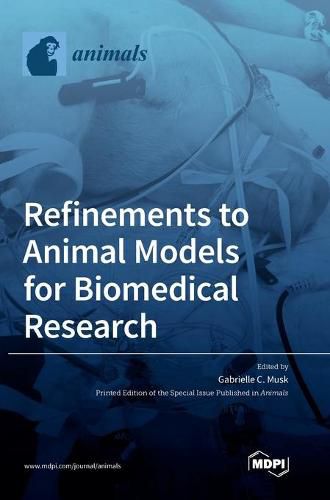Readings Newsletter
Become a Readings Member to make your shopping experience even easier.
Sign in or sign up for free!
You’re not far away from qualifying for FREE standard shipping within Australia
You’ve qualified for FREE standard shipping within Australia
The cart is loading…






This title is printed to order. This book may have been self-published. If so, we cannot guarantee the quality of the content. In the main most books will have gone through the editing process however some may not. We therefore suggest that you be aware of this before ordering this book. If in doubt check either the author or publisher’s details as we are unable to accept any returns unless they are faulty. Please contact us if you have any questions.
There is some talk about an antibiotic Armageddon, wherein untreatable post-operative infections and similarly untreatable complications after chemotherapy will occur. The now famous O'Neill Report suggests that, by 2050, more people could die from resistant bacterial infections than from cancer. We are still learning about all the subtle drivers of antibiotic resistance, realizing that we need a single whole health coordinated policy. We ingest what we sometimes feed to animals, yet there does not seem to be any new classes of antibiotics on the horizon. Maybe there is something that has been around forever that could could to our rescue: bacteriophages. Nevertheless, we have to do things differently. We must use antibiotics appropriately and for the correct indication, duration, and dosage with good practice and stewardship.. While by no means comprehensive, this book covers many topics regarding antibiotic stewardship. It also addresses older antibiotics, new combinations, and even new agents. Last but not least, this book features two excellent articles on bacteriophages. Refinements to animal models used in research for either human or animal benefit must be an ongoing aim for anyone working in this context, whether it be as an animal carrier, an animal user, a veterinarian, or an official. Unfortunately, the details of refinements are often overlooked in publications describing the research outcomes. This book includes manuscripts published in the Animals Special Issue Refinements to Animal Models for Biomedical Research . In this contemporary resource, we included 12 peer-reviewed papers that cover a range of approaches to the concept of refinement.
$9.00 standard shipping within Australia
FREE standard shipping within Australia for orders over $100.00
Express & International shipping calculated at checkout
This title is printed to order. This book may have been self-published. If so, we cannot guarantee the quality of the content. In the main most books will have gone through the editing process however some may not. We therefore suggest that you be aware of this before ordering this book. If in doubt check either the author or publisher’s details as we are unable to accept any returns unless they are faulty. Please contact us if you have any questions.
There is some talk about an antibiotic Armageddon, wherein untreatable post-operative infections and similarly untreatable complications after chemotherapy will occur. The now famous O'Neill Report suggests that, by 2050, more people could die from resistant bacterial infections than from cancer. We are still learning about all the subtle drivers of antibiotic resistance, realizing that we need a single whole health coordinated policy. We ingest what we sometimes feed to animals, yet there does not seem to be any new classes of antibiotics on the horizon. Maybe there is something that has been around forever that could could to our rescue: bacteriophages. Nevertheless, we have to do things differently. We must use antibiotics appropriately and for the correct indication, duration, and dosage with good practice and stewardship.. While by no means comprehensive, this book covers many topics regarding antibiotic stewardship. It also addresses older antibiotics, new combinations, and even new agents. Last but not least, this book features two excellent articles on bacteriophages. Refinements to animal models used in research for either human or animal benefit must be an ongoing aim for anyone working in this context, whether it be as an animal carrier, an animal user, a veterinarian, or an official. Unfortunately, the details of refinements are often overlooked in publications describing the research outcomes. This book includes manuscripts published in the Animals Special Issue Refinements to Animal Models for Biomedical Research . In this contemporary resource, we included 12 peer-reviewed papers that cover a range of approaches to the concept of refinement.